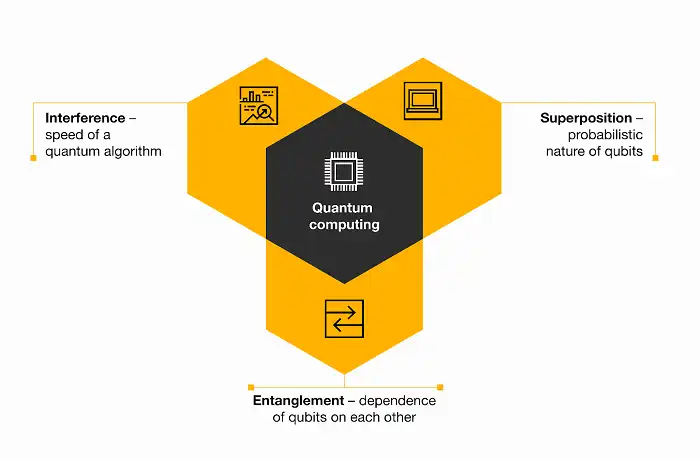Exploring the Benefits of Interference in Quantum Computing
Quantum computing has emerged as a revolutionary paradigm with the potential to solve complex computational problems that are intractable for classical computers. At the heart of quantum computing lies the concept of interference, a fundamental phenomenon that enables quantum algorithms to outperform classical algorithms in certain tasks. In this article, we’ll delve into the concept of interference in quantum computing and explore its key benefits.

Understanding Interference in Quantum Computing
Interference is a hallmark feature of quantum mechanics that arises from the wave-like nature of quantum particles, such as photons and electrons. In quantum computing, interference refers to the phenomenon where quantum states can overlap and interfere with each other, leading to constructive or destructive interference patterns.
This interference can be harnessed to manipulate and process quantum information in ways that are fundamentally different from classical computing.
Benefits of Interference in Quantum Computing
Interference offers several key benefits in quantum computing
Superposition
Interference enables quantum bits, or qubits, to exist in superposition states, where they can represent multiple values simultaneously. This allows quantum algorithms to explore many possible solutions to a problem in parallel, providing exponential speedup over classical algorithms for certain tasks, such as factoring large numbers or searching unsorted databases.
Entanglement
Interference plays a crucial role in creating and exploiting entangled states of qubits. Entanglement allows qubits to become correlated in such a way that the state of one qubit is dependent on the state of another, even when they are physically separated.

This phenomenon enables quantum algorithms to perform highly coordinated operations across multiple qubits, leading to novel computational capabilities and increased efficiency.
Quantum Algorithms
Interference lies at the heart of many quantum algorithms, such as Shor’s algorithm for integer factorization and Grover’s algorithm for unstructured search. These algorithms leverage interference effects to amplify the probability of obtaining the correct solution and suppress incorrect solutions, leading to exponential speedup compared to classical algorithms for certain problems.
Frequently Asked Questions (FAQ)
How does interference enable quantum computers to outperform classical computers?
Interference allows quantum computers to explore multiple computational paths simultaneously, leveraging superposition and entanglement to process information in parallel and perform highly coordinated operations. This enables quantum algorithms to achieve exponential speedup for certain tasks compared to classical algorithms.
Are there any downsides or challenges associated with interference in quantum computing?
While interference is a key feature of quantum computing, it also introduces challenges such as susceptibility to noise and decoherence, which can degrade the quality of quantum computations. Researchers are actively exploring techniques to mitigate these challenges and improve the reliability and scalability of quantum computers.
Can interference be observed in classical computing systems?
While interference is a purely quantum phenomenon, analogous concepts such as parallel processing and parallel computing exist in classical computing systems. However, classical systems cannot replicate the full range of interference effects seen in quantum computing due to the fundamentally different nature of classical and quantum information processing.
Conclusion
Interference is a fundamental concept in quantum computing that underpins its transformative capabilities. By harnessing interference effects, quantum computers can perform complex computations with unprecedented speed and efficiency, offering the potential to revolutionize fields such as cryptography, optimization, and materials science. As research and development in quantum computing continue to advance, the benefits of interference are poised to drive breakthroughs in computational capabilities and unlock new opportunities for innovation.






